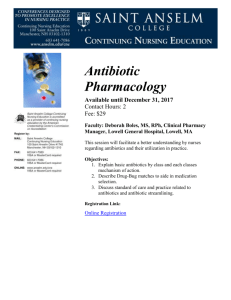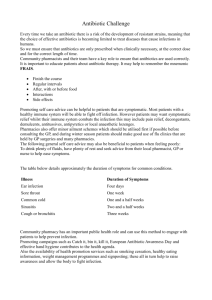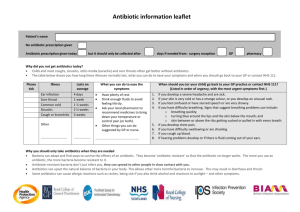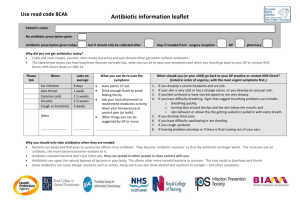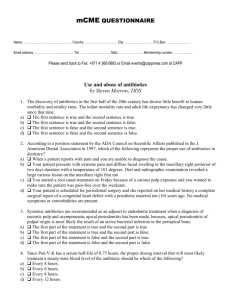Antibiotics Q&A
advertisement
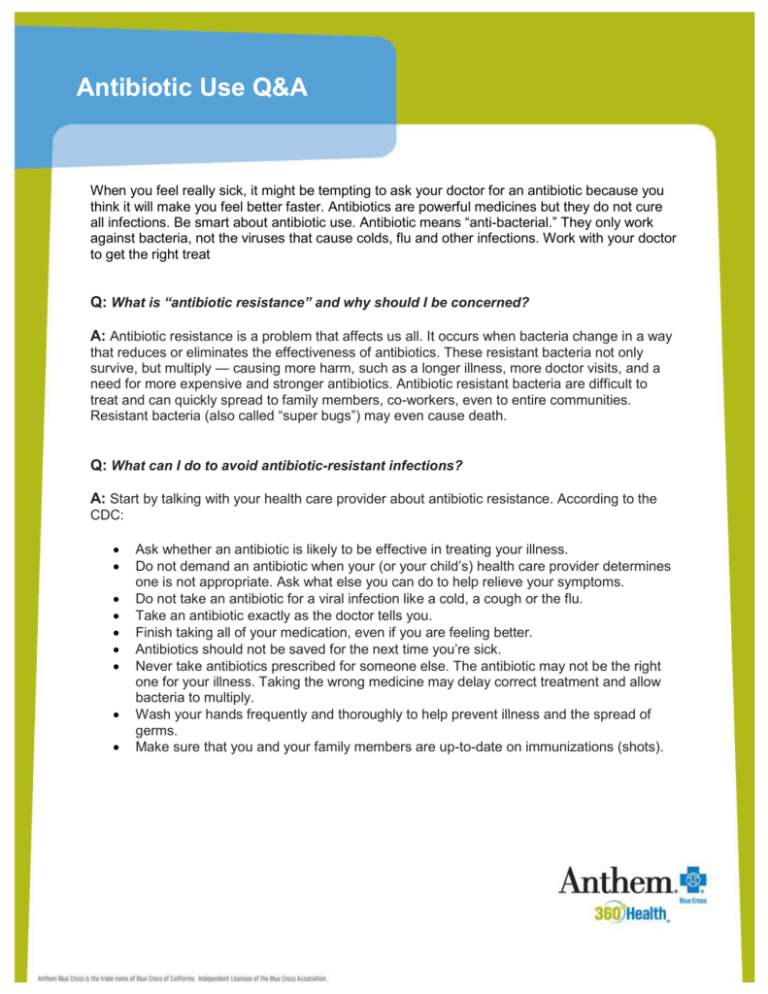
Antibiotic Use Q&A When you feel really sick, it might be tempting to ask your doctor for an antibiotic because you think it will make you feel better faster. Antibiotics are powerful medicines but they do not cure all infections. Be smart about antibiotic use. Antibiotic means “anti-bacterial.” They only work against bacteria, not the viruses that cause colds, flu and other infections. Work with your doctor to get the right treatment during this cold and flu season. Q: What is “antibiotic resistance” and why should I be concerned? A: Antibiotic resistance is a problem that affects us all. It occurs when bacteria change in a way that reduces or eliminates the effectiveness of antibiotics. These resistant bacteria not only survive, but multiply — causing more harm, such as a longer illness, more doctor visits, and a need for more expensive and stronger antibiotics. Antibiotic resistant bacteria are difficult to treat and can quickly spread to family members, co-workers, even to entire communities. Resistant bacteria (also called “super bugs”) may even cause death. Q: What can I do to avoid antibiotic-resistant infections? A: Start by talking with your health care provider about antibiotic resistance. According to the CDC: Ask whether an antibiotic is likely to be effective in treating your illness. Do not demand an antibiotic when your (or your child’s) health care provider determines one is not appropriate. Ask what else you can do to help relieve your symptoms. Do not take an antibiotic for a viral infection like a cold, a cough or the flu. Take an antibiotic exactly as the doctor tells you. Finish taking all of your medication, even if you are feeling better. Antibiotics should not be saved for the next time you’re sick. Never take antibiotics prescribed for someone else. The antibiotic may not be the right one for your illness. Taking the wrong medicine may delay correct treatment and allow bacteria to multiply. Wash your hands frequently and thoroughly to help prevent illness and the spread of germs. Make sure that you and your family members are up-to-date on immunizations (shots). Q: What kinds of infections are caused by viruses and should not be treated with antibiotics? A: Colds, flu, most coughs/bronchitis, and sore throats (Except for those resulting from strep throat. A strep test should be done and the results received before antibiotics are started). Q: How do I know when an illness is caused by a viral or bacterial infection? A: It is very hard to tell what caused the infection. Consult with your doctor or health care provider to be sure. Q: When do I need to take antibiotics? A: Antibiotics are very powerful medications. They should only be used when prescribed by a doctor to treat bacterial infections. Q: Do I need an antibiotic when mucus from the nose changes to yellow or green? A: Yellow or green mucus does not necessarily indicate a bacterial infection. It is normal for the mucus to get thick and change color during a viral cold. Antibiotics will not cure a runny nose either. For more information on correct antibiotic use, visit anthem.com/ca. Source: Centers for Disease Control and Prevention http://www.cdc.gov/drugresistance/community/media/Virtual_Press_Kit/Complete_ABR_VPK.pdf This information is intended for educational purposes only, and should not be interpreted as medical advice. Please consult your physician for advice about changes that may affect your health.

